Sale 2683 - Lot 157
Additional Images
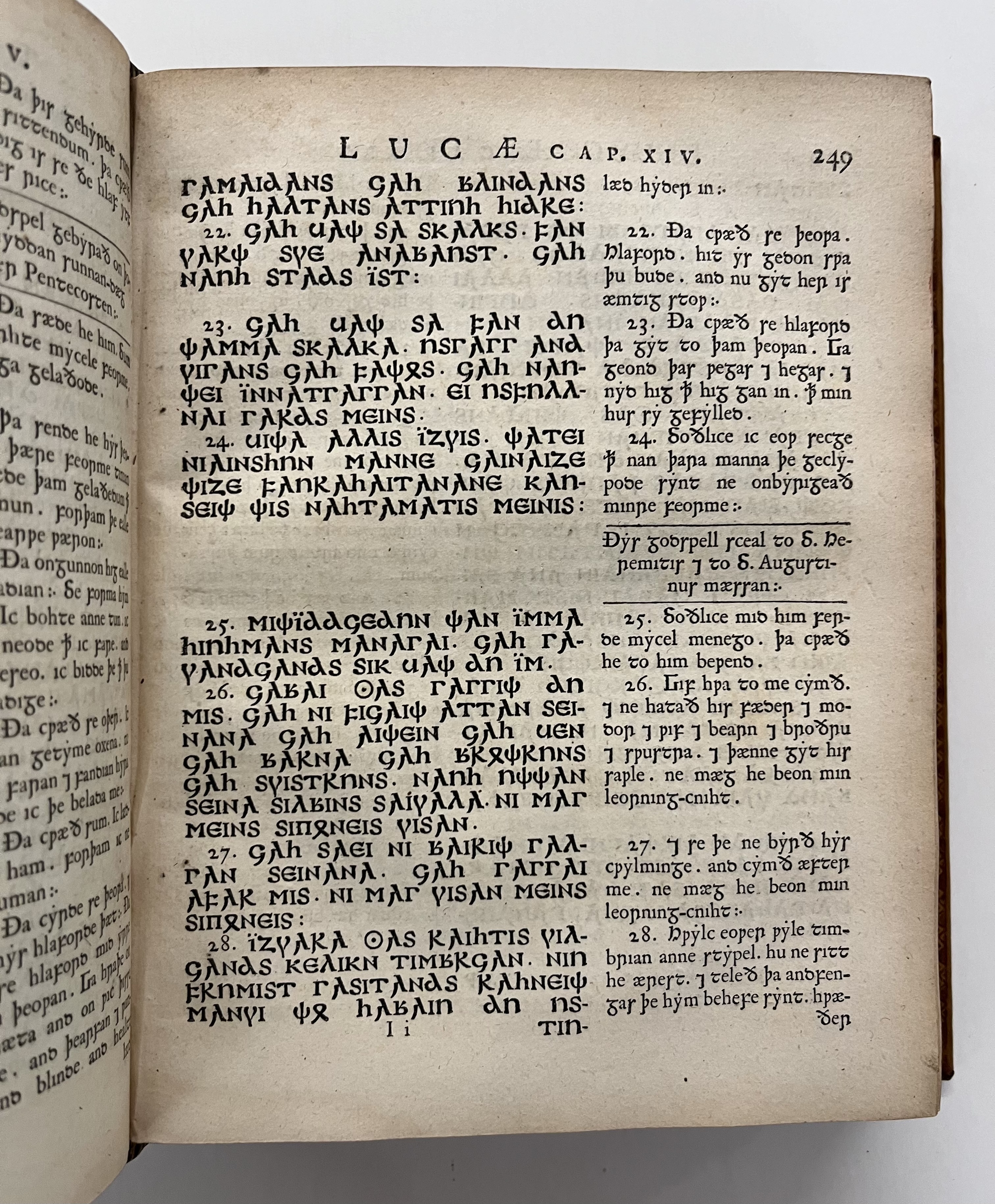
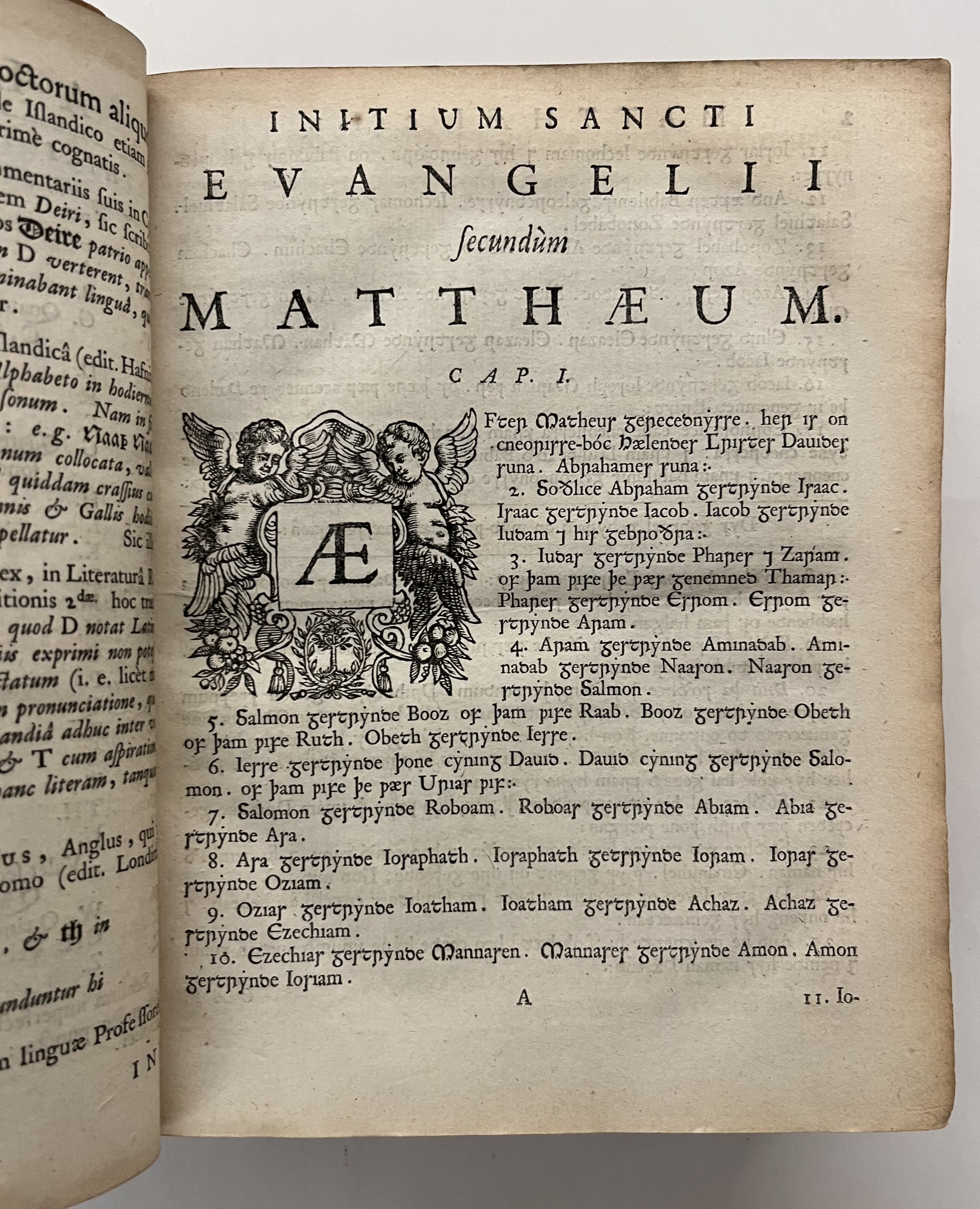
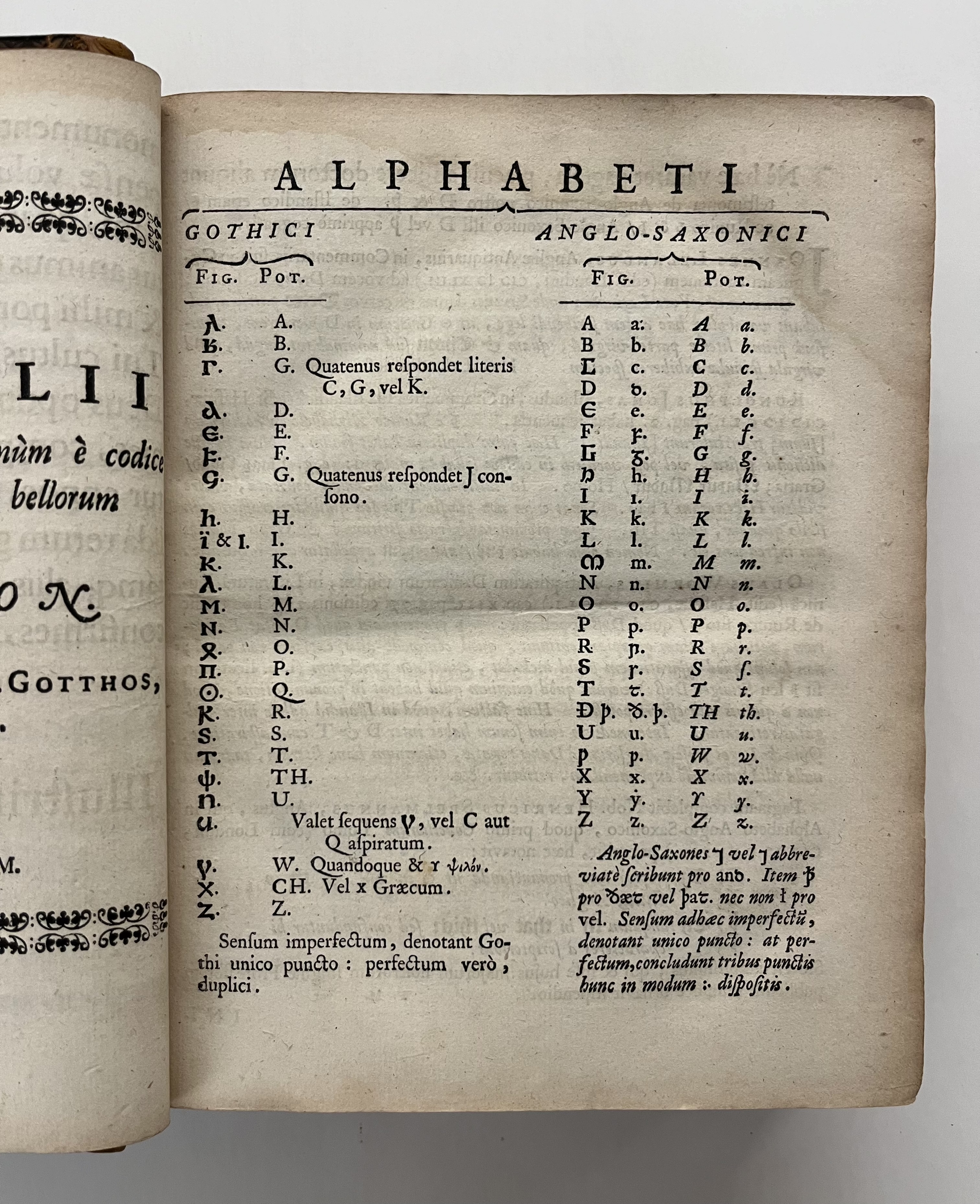
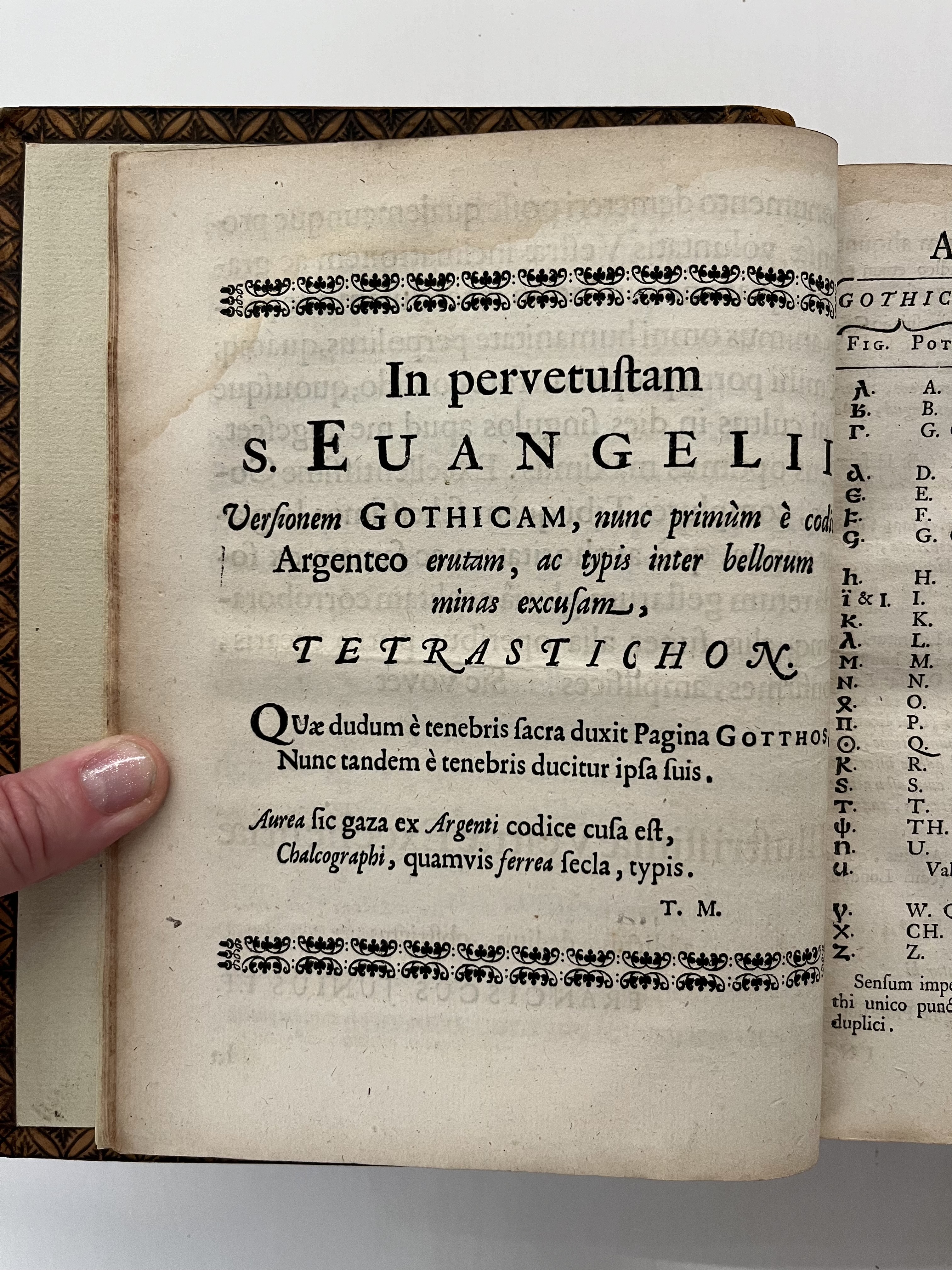
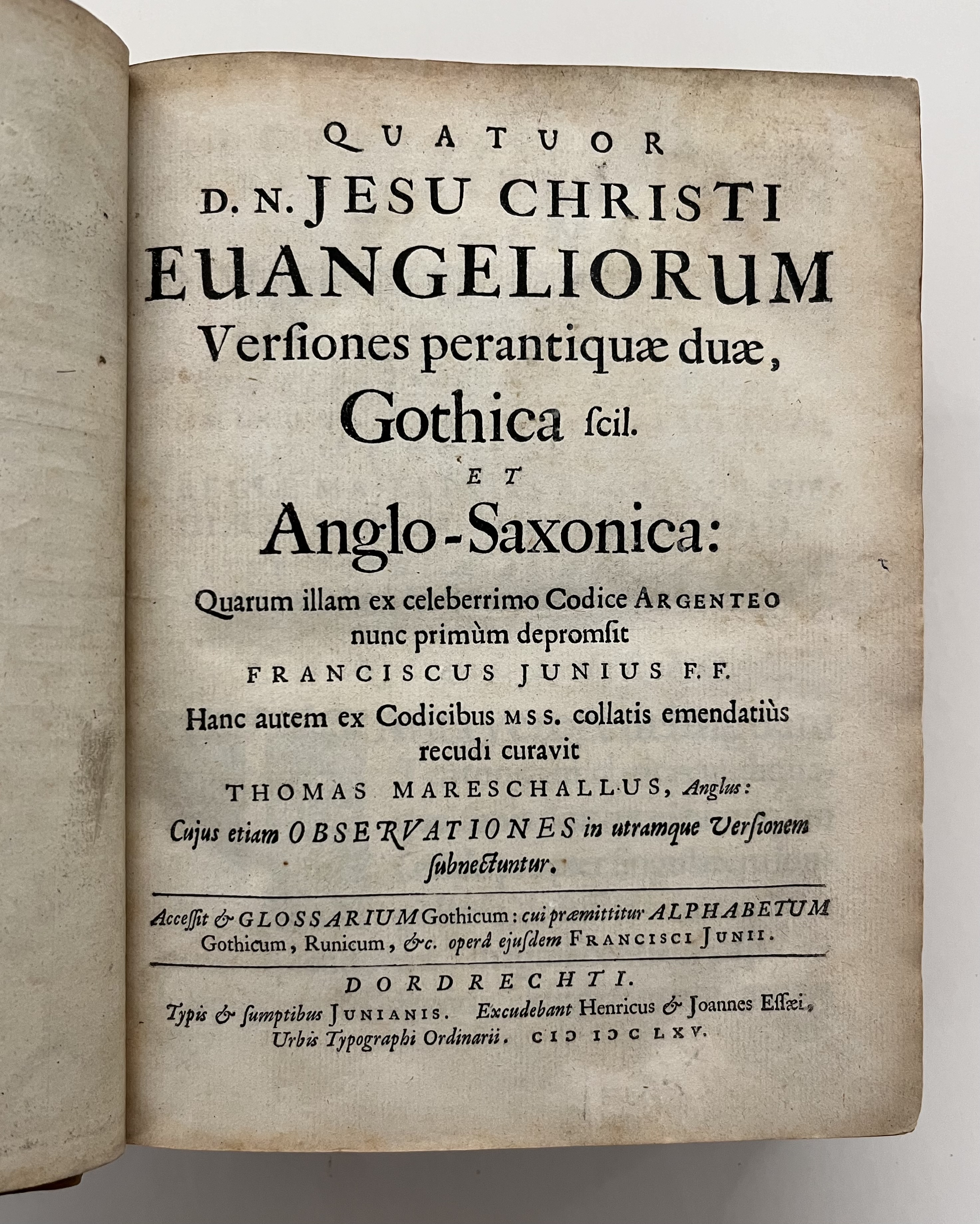
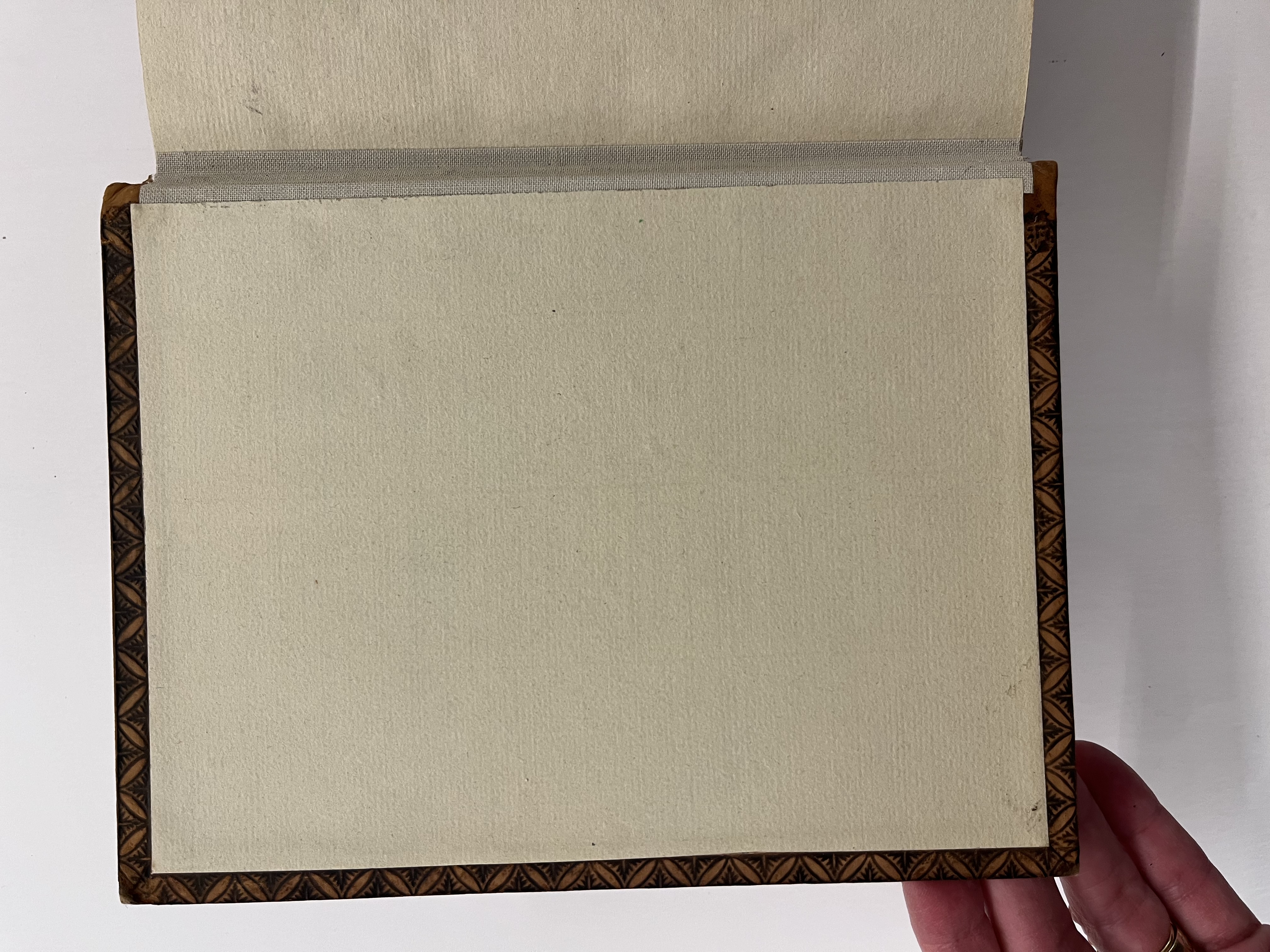
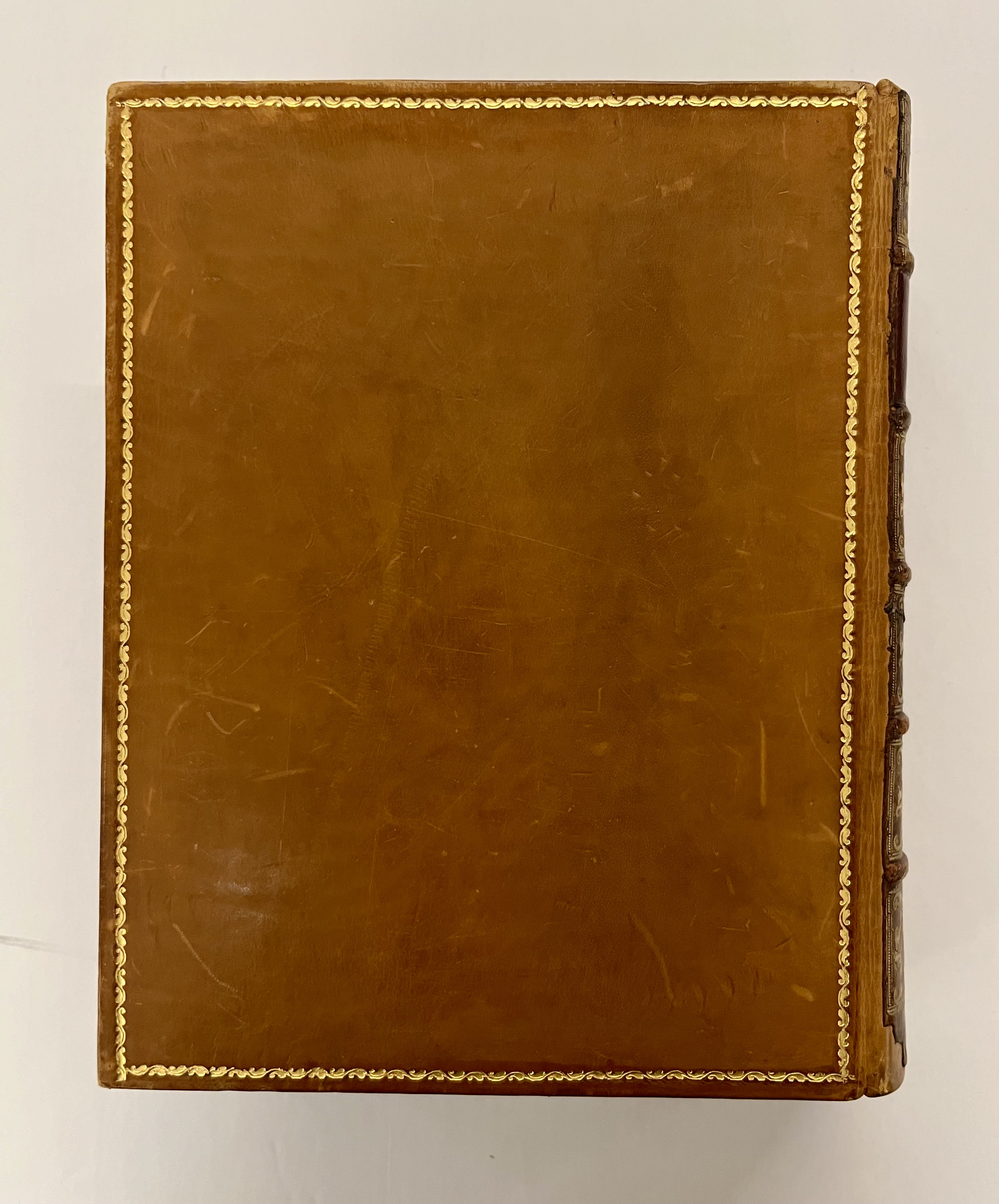
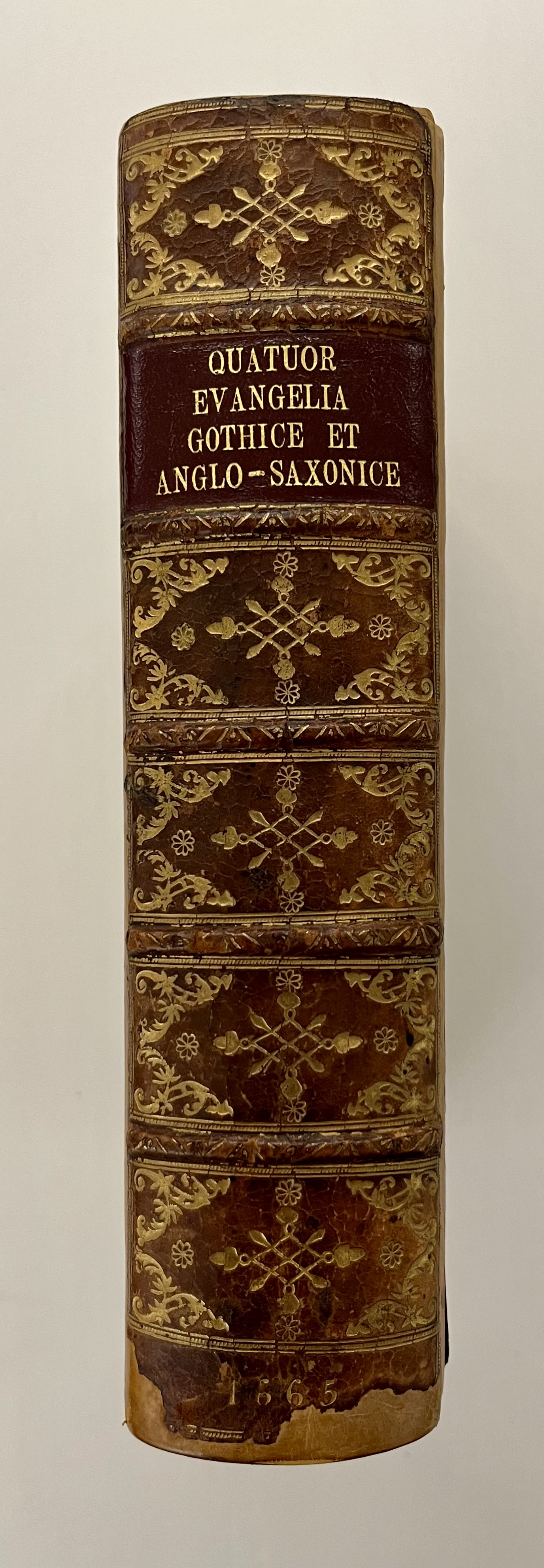
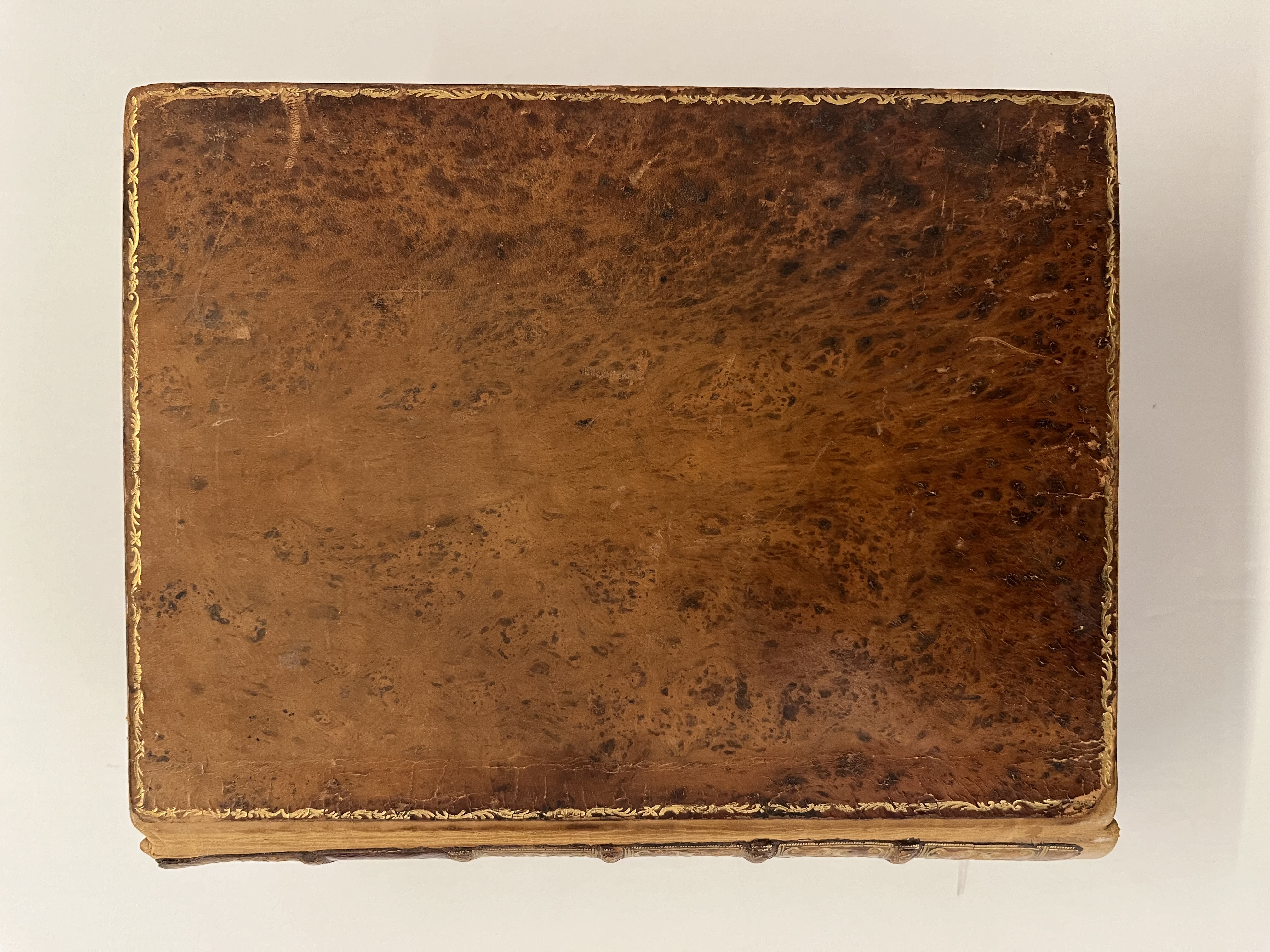
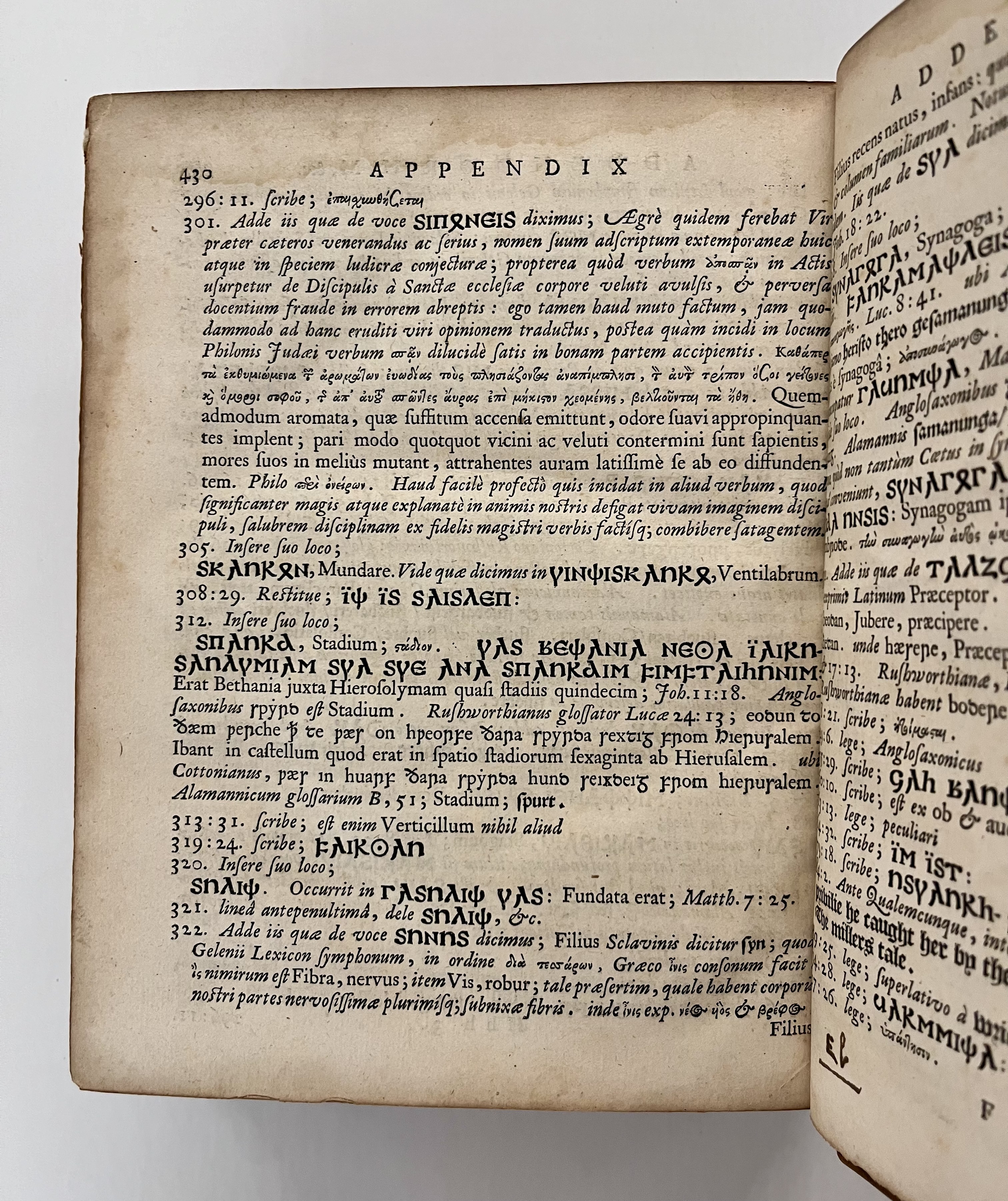








1 /
10












Sale 2683 - Lot 157
Estimate: $ 1,500 - $ 2,000
Gospels, Gothic and Anglo-Saxon Translation.
Quatuor D.N. Jesu Christi Evangeliorum Versiones Perantiquae Duae, Gothica scil. et Anglo-Saxonica.
Dordrecht: Typis & sumptibus Junianis, excudebant Henricus & Joannes Essaei, 1665.
First edition of the Gothic New Testament, quarto, two parts in one volume, including the Gothicum Glossarium, with divisional title page; general added engraved title page by Santvoort; text in Anglo-Saxon and Gothic with other notes in Latin, Greek, and Hebrew; bound in marbled calf tooled in gilt, neatly rebacked; 7 3/4 x 6 in.
Darlow & Moule 1604.
Ulfilas (310-381 CE), Apostle of the Goths, translated (or perhaps collaborated with others, serving as the project editor) the gospels into the Gothic language around the year 369. He is also credited with coming up with the Gothic script letterforms. Isaac Vossius obtained a circa 1655 manuscript transcription from Queen Christina's library. "Beyond their interest to the student of textual criticism, these fragments possess special value for the philologist as preserving what is 'by several centuries the oldest specimen of Teutonic speech.'" (Quoted from Darlow & Moule.)
Quatuor D.N. Jesu Christi Evangeliorum Versiones Perantiquae Duae, Gothica scil. et Anglo-Saxonica.
Dordrecht: Typis & sumptibus Junianis, excudebant Henricus & Joannes Essaei, 1665.
First edition of the Gothic New Testament, quarto, two parts in one volume, including the Gothicum Glossarium, with divisional title page; general added engraved title page by Santvoort; text in Anglo-Saxon and Gothic with other notes in Latin, Greek, and Hebrew; bound in marbled calf tooled in gilt, neatly rebacked; 7 3/4 x 6 in.
Darlow & Moule 1604.
Ulfilas (310-381 CE), Apostle of the Goths, translated (or perhaps collaborated with others, serving as the project editor) the gospels into the Gothic language around the year 369. He is also credited with coming up with the Gothic script letterforms. Isaac Vossius obtained a circa 1655 manuscript transcription from Queen Christina's library. "Beyond their interest to the student of textual criticism, these fragments possess special value for the philologist as preserving what is 'by several centuries the oldest specimen of Teutonic speech.'" (Quoted from Darlow & Moule.)





